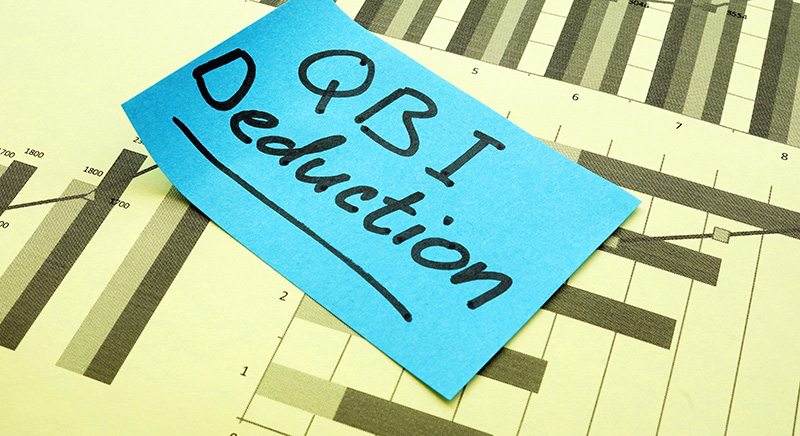Qualified Business Income Deduction | What You Should Know
February 18, 2022 by Karen Reed, EA
The Tax Cuts and Jobs Act made it possible for certain business owners to claim a new deduction called the Qualified Business Income deduction. The deduction is also known as the QBI deduction, and tax professionals often refer to it as the Section 199A deduction. The deduction is available for tax years beginning after 12/31/17.
Who qualifies for the QBI deduction?
The QBI deduction allows owners of proprietorships, partnerships, and S corporations (and some estates and trusts) to claim a deduction of up to 20% on income that is considered “qualified business income.” It also allows a 20% deduction on qualified real estate investment trust (REIT) dividends and qualified publicly traded partnership (PTP) income. A qualified trade or business for the QBI deduction does not include C corporations or services provided by an employee.
What is “qualified business income”?
To determine qualified business income, the first step is to review the general rules for the deduction that apply to taxpayers of all levels of income.
General rules
The general rules for the QBI deduction for all income levels are:
- The income must be from a U.S. trade or business.
- The income must not be from sources that would make it, by definition, not qualified business income. Income that is not QBI includes income from wages, salaries, guaranteed payments, capital gains and losses, dividends and equivalents, interest, and annuities.
- Taxpayers who own multiple businesses must separately compute a deduction for each business. A grouping election may be available for similar businesses based on a number of factors.
If you meet these general rules, the next step is to determine if your income falls below the threshold, within the threshold range, or above the threshold. This helps to determine which set of rules to apply next.
Different rules for different income levels
Different sets of rules apply for the QBI deduction depending on the taxable income level of the individual taxpayer claiming the deduction and the type of business activity. The income threshold for these rules is $157,000 for single filers and $315,000 for joint filers. There is also a phaseout range of $157,000 to $207,500 for single filers and $315,000 to $415,000 for joint filers.
When taxable income is below the threshold, income from activities deemed to be from “specified services” qualifies for the deduction. When income is above these threshold amounts, specified services income does not qualify for the deduction. When income is above the threshold amount but within the phaseout range, a percentage of income from specified services is allowed for determining QBI.
In addition, these income thresholds determine whether or not W-2 wages paid by the business must be factored into the computation for the QBI deduction. When income is above the threshold amounts, the QBI deduction is limited to 50% of wages paid by the business. When income is within the phaseout range, partial limits apply. An alternative limitation is 25% of wages along with a percentage of the unadjusted basis of certain business property.
Specified services income
Specified service trade or business activities for the purposes of qualifying for the QBI deduction include business activities in the fields of health, law, accounting, actuarial science, performing arts, consulting, athletics, financial and brokerage services, investment management (including trading in securities and commodities), and trades and businesses in which the reputation and skill of one or more employees is the principal business asset.
Wage limitation
Wages paid are defined as payments made by the business that are subject to FICA or payroll tax withholding. They do not include wages allocable to income that does not meet the general rules listed above. They also do not include guaranteed payments made to partners.
What impact do losses have on the Qualified Business Income deduction?
In tax years when a qualified business reports a loss, a negative QBI deduction is generated, but this negative amount is not added to taxable income. Instead, the negative deduction amount carries over and is used to offset the next year’s QBI deduction, reducing the amount of the deduction in a subsequent year.
For many taxpayers who operate small businesses, the qualified business income deduction can be an excellent way to reduce your income taxes. But computing the QBI deduction can be quite complicated, and these are just some of the general rules that are important for business owners to understand. Each individual’s QBI computation will depend on the specific facts of the business owner’s situation, their marital status, their business type, and their other income sources. If you think you may be qualified to take this deduction, make sure you know the rules!





